More than 11 years revealing secrets because there is no excuse for secrecy in God’s true religion – The Watchtower, June 1st 1997; Dan 2:47; Matt 10:26; Mark 4:22; Luke 12:2; Acts 4:19, 20.
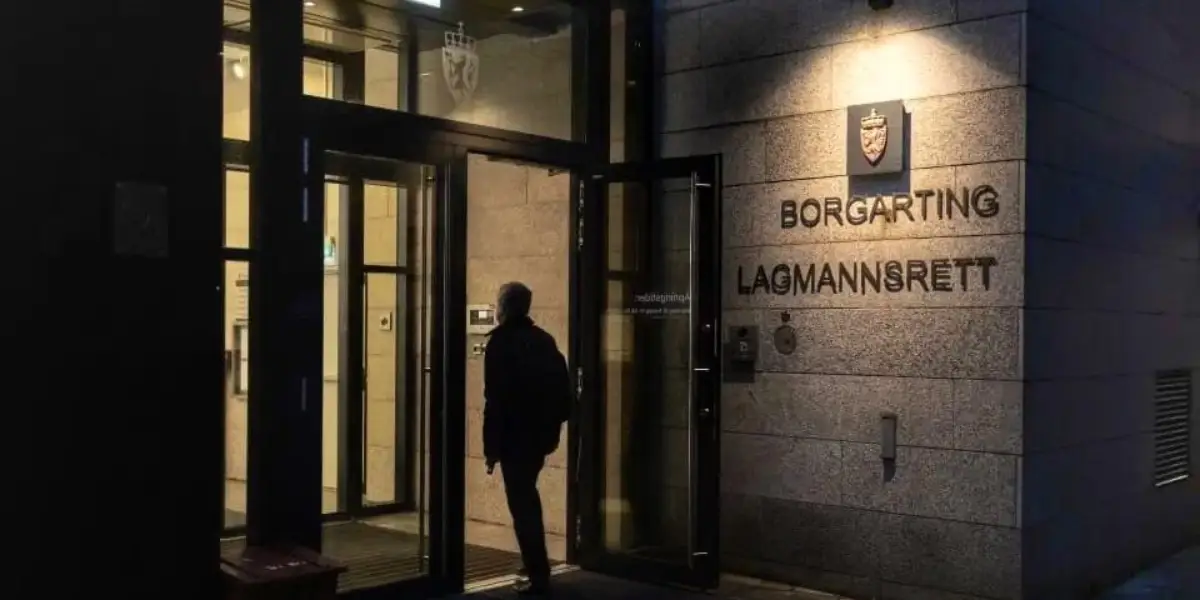
Published By: Miss Usato, Last Updated: February 14th, 2025
If children are baptized too early, it is the parents’ fault.
– Anders Ryssdal
Oslo, Norway— The Closing Arguments for the Appeal, Days 7-9. The legal battle between Jehovah’s Witnesses (plaintiff) and the Norwegian State (defendant) intensified on Day 7 (on Wednesday, Tuesday, they took a break) of the appeal hearing, starting with plaintiff’s closing Arguments.
WARNING: The Plaintiff’s lawyer utters lies, dismisses evidence by key witnesses, describes them as “hostile” or “disgruntled”, and reframes key practices of the religious group to present them more favorably to the court. Therefore, a lot of his arguments may prove very triggering for some readers, particularly for those who have been directly impacted by their harmful practices..
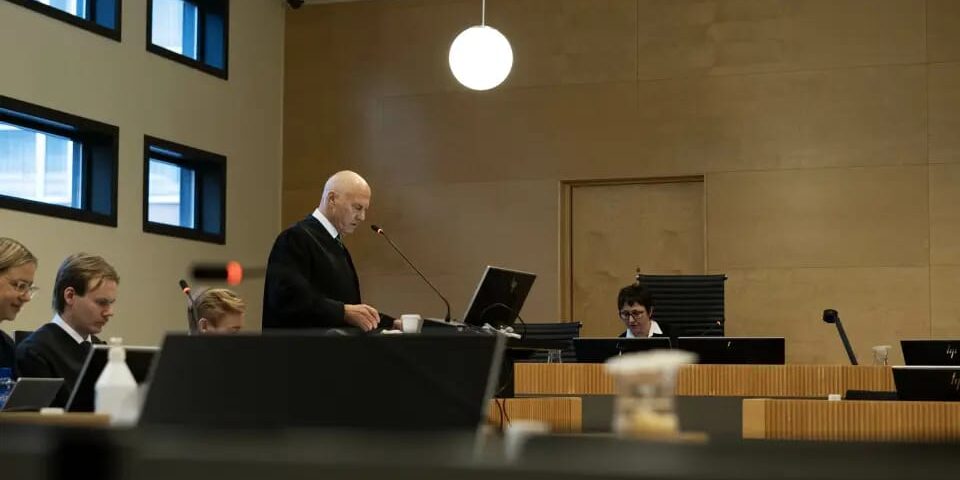
Meager evidence from hostile witnesses – Anders Ryssdal
February 12th, Anders Stray Ryssdal, started by strongly opposing the state’s arguments and their witnesses. He dismissed the accusations of negative social control, coercion, and children’s rights violations as being based on “meager evidence from hostile witnesses.” He claimed the state’s actions were an unjust attack on the religious freedom of all 12,000 Jehovah’s Witnesses in Norway.
A group of former members from multiple countries, including Iceland, the U.S., the U.K., Belgium, and Denmark, attended the hearing to support Former witnesses testifying against the organization. Some described the atmosphere, while Ryssdal gave his closing arguments in the courtroom as intimidating and tense. The Jehovah’s Witnesses who attended the appeal flooded the courtroom to dominate the seating. This happened nearly every day at this appeal.
Ryssdal suggested that the personal biases of former members may have influenced their accounts. He employs a version of DARVO (Deny, Attack, Reverse Victim, and Offender), a common manipulation tactic in which the victim is portrayed as the aggressor.
Poorly Investigated
Rysssdal begins his arguments by stating that this case is not about negative social control, which he believes he can prove thoroughly. According to Ryssdal, the core issue in this case is religious practice. He argues that Jehovah’s Witnesses do not have a particularly frightening religion—for example, they do not believe in hell, but fails to mention that they have a different fear to instill within children: an imminent and real Armageddon. Instead, he says they focus on the end times and what happens after death. Ryssdal asserts that Jehovah’s Witnesses do not violate children’s rights and repeats that they do not engage in negative social control. He also finds it unreasonable that the state denies funding to 12,000 members because of complaints from just two or three dissatisfied individuals, conveniently ignoring the fact that more than 3 gave evidence in court early in the week, and that those who did give evidence represent a much larger number. Furthermore, he claims that this case requires stringent standards of evidence. “We cannot convict 12,000 Jehovah’s Witnesses because a few had bad experiences.”
He argues that the case has been poorly investigated and that the state should have conducted an independent expert assessment of Jehovah’s Witnesses. He also insists that the terms negative social control and psychological violence should not be used in the case, despite the evidence showing that this is exactly what Jehovah’s Witnesses employ to retain membership.
Its the parents fault
He compares Jehovah’s Witnesses’ baptism to the Norwegian state church’s confirmation of 15-year-olds, arguing that their baptism is no different. Membership is open to everyone, and anyone can leave. Ryssdal claims that if children are baptized too early, it is the parents’ fault—not Jehovah’s Witnesses. He argues that it is not the organization’s responsibility if some members are overly zealous. Children must learn to think independently before they are baptized.
He also references a Former Witness who testified, Djønne (his story is found in Article of Day 6) who describes him as a thoughtful but angry man and states that his father—not Jehovah’s Witnesses—was the real problem. Pointing the finger at others to detract from one’s own mistakes is a cheap and shallow defense.
He reiterates that testimonies from ex-members have little value and cites Italian sociologist of religion Massimo Introvigne as a source. It should be noted that Introvigne has not and does not interact with former members of Jehovah’s Witnesses; his work is heavily biased towards cults. He has no data or evidence for the claim that former members’ testimony is of little value. Incidentally, that was an unfounded claim made by Bryan Wilson in the 1970s, who wrote it in a paper without providing any references or supporting data.
Ryssdal claims that Jehovah’s Witnesses are very liberal but that some parents have made mistakes and been too strict. He provides no evidence to support this claim. How many is “some”? 6, 60, 600, 6000? He compares this to doping in sports, saying that just because some athletes use doping doesn’t mean everyone does. Regarding Jehovah’s Witnesses’ publications, he argues that they are not legal texts and that two people can read the exact text and interpret it entirely differently. He also claims that there is no evidence that elders act as a police force or seek out ex-members. So, in short, Ryssdal provides no evidence for his claims but is quick to point out there is no evidence for some of the defendant’s claims.
He repeats that Jehovah’s Witnesses are the ones being violated and that they now fear being portrayed as “a dubious sect.” He also mentions that the loss of their right to perform marriages is a violation. Additionally, he argues that they could theoretically lose clergy confidentiality rights, similar to those granted to Norwegian priests. He further claims that parents’ rights to raise their children within their religion or philosophy are being violated. He asserts that another violation is requiring Jehovah’s Witnesses to change their biblical stance on exclusion to receive state funding.
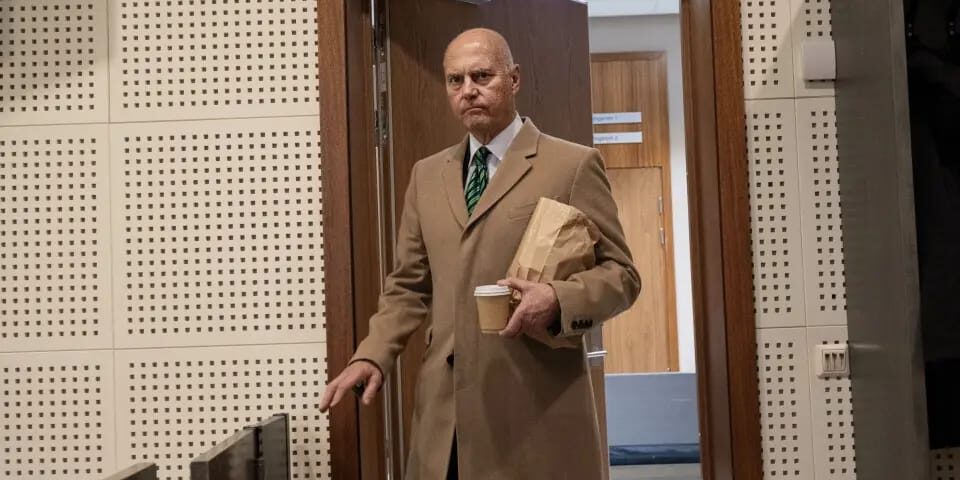
A loving Arrangement
After the break, the topic shifts precisely to exclusion. Ryssdal describes it as a loving arrangement. He claims that exclusion is not a punishment but a therapeutic measure. Family relationships, he argues, remain the same after exclusion. This is a blatant lie. He continues his lie by saying that it is up to each Jehovah’s Witness to decide how much or how little contact they want with a disfellowshipped person. Lying further, he insists that elders do not give any instructions or advice regarding contact.
Just personal Circumstances
But he doesn’t stop with his lies there. He further claims a high degree of normalcy in family relationships with disfellowshipped members. He argues that complex personal circumstances and former members’ mental health issues are the real reasons people experience social rejection. He provides no evidence for this ludicrous claim!
Ryssdal then works to discredit the testimonies of former members, witness by witness. He dismisses the State’s claims of negative social control and child rights violations as based on “meager evidence from hostile witnesses.” He argues that testimonies from former members are unreliable and do not justify stripping the organization of its registration and state funding. He provides no evidence as to why the testimony of the former members is unreliable. Indeed, he could not provide even a single example that any of the testimonies given by the former members was demonstrably false. So why are their testimonies unreliable?
He summarizes by claiming that his client is being discriminated against because of their exclusion policy. He argues that the State is both interfering and violating Jehovah’s Witnesses’ rights and that the government is mistreating them—stating that the law should apply equally to all.
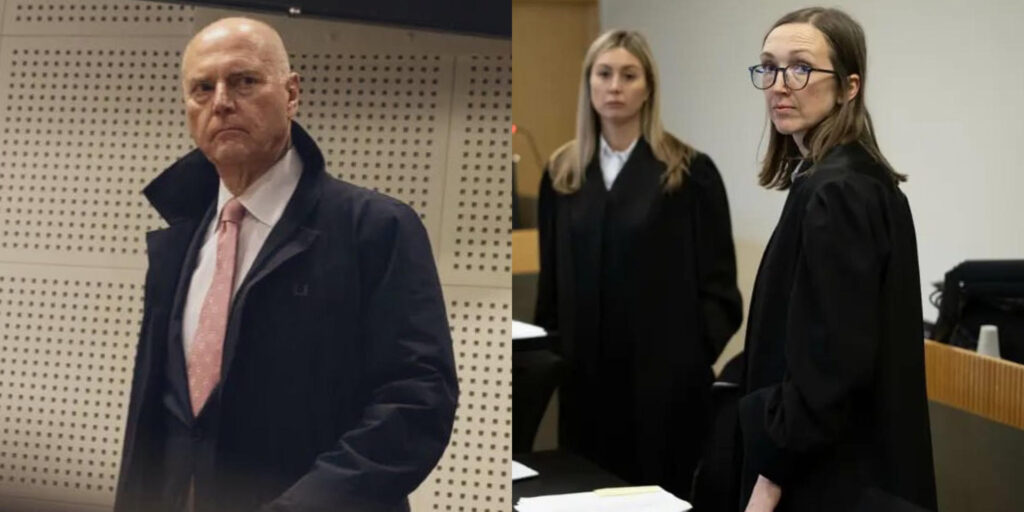
Should individual religious freedom and children’s rights take precedence over the religious freedom of a faith community when they conflict?
– Liv Inger Gjone Gabrielsen
February 13th, Watchtowers Lawyer Ryssdal concludes his arguments on Day 8, emphasizing that no other country—except Russia—has gone as far as Norway in treating Jehovah’s Witnesses differently from different religious groups. One would nearly think Norway was banning the group. But this is not the case. They continue to enjoy religious freedom. They have only lost their registration for funding, which includes the loss of performing legal marriages.
Ryssdal’s last argument is that the State had failed to prove the existence of any form of negative social control within Jehovah’s Witnesses: “They have only demonstrated a Bible-based social distancing.” What is a Bible-based social distancing? Whether it is Bible-based or not, the “social distancing” is the crux of the issue: total disconnection from family and friends.
Norway’s turn for closing Arguments
Government attorney Liv Inger Gjone Gabrielsen began her argument by representing the Ministry of Children and Families. She rejected Ryssdal’s claim that the state was attacking religious freedom: “Freedom of religion is something the state values highly, and it extends far. But the rights of a religious community under it are not unlimited.”
Gabrielsen stressed that the case is not about individual members but about the organization as a whole. She posed the key question: “Should individual religious freedom and children’s rights take precedence over the religious freedom of a faith community when they conflict?”
She argued that religious communities must be limited in their activities and that the state’s decision to revoke funding and registration was an attempt to balance individual rights and religious rights.
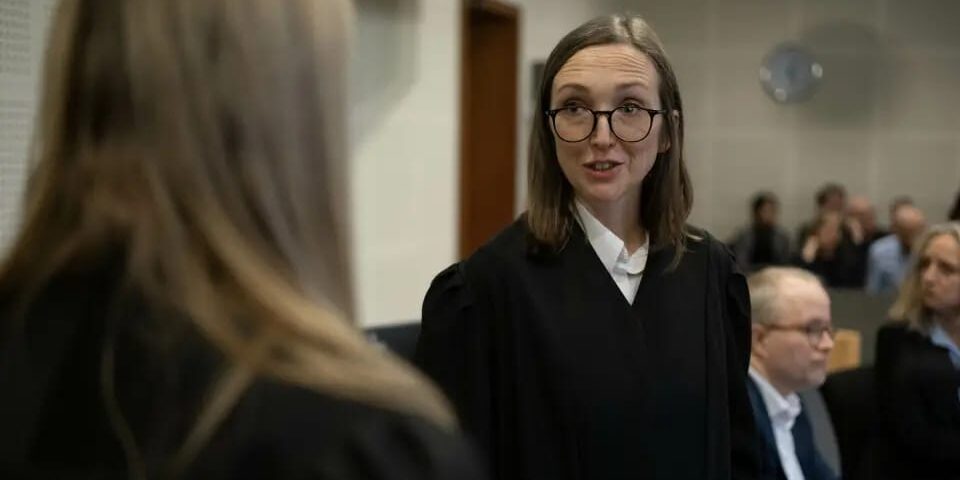
Children can be forced to appear before these committees, where elder men decide their fate in the congregation.
– Liv Inger Gjone Gabrielsen
In the afternoon, Gabrielsen laid out several key arguments about why the State had the legal right to revoke Jehovah’s Witnesses’ state funding and official registration. Her arguments centered on the claim that the religious group’s practices violate children’s rights and that the social consequences of leaving the faith amount to coercion.
Jehovah’s Witnesses Prevent Members from Leaving
One of the state’s central arguments is that Jehovah’s Witnesses create significant barriers to leaving the faith, effectively coercing members to remain. Gabrielsen argued that this is not just about personal religious beliefs but about institutionalized practices that make it extremely difficult for individuals—especially children—to exercise their right to religious freedom. “There goes a limit to what religious communities can do,” Gabrielsen stated in court, defending the decision to strip the group of state benefits.
The state contends that those who attempt to leave the religion face severe social and emotional consequences, making their choice to stay less than voluntary. This is a violation of religious freedom, as it restricts individuals—particularly minors—from freely choosing their faith or lack thereof.
Children May Face Isolation
Another major concern raised by the state is that Jehovah’s Witnesses’ doctrine on disfellowshipping (exclusion) can lead to social isolation of children. If a child fails to adhere to the religion’s strict rules, they risk being shunned by their family and community. Gabrielsen suggested that this practice could amount to psychological harm and deprive children of a safe and supportive upbringing.
For example, Jehovah’s Witnesses strictly prohibit association with those who leave the faith, including family members. This can have devastating effects on children, who might be cut off from relatives and friends if they question or reject the group’s teachings. The government argues that this isn’t just a religious practice but a systematic method of control that violates children’s fundamental rights to social development and emotional well-being.
Children May Be Subjected to Judicial Committees
A particularly concerning issue for the state is the role of “judicial committees,” which are internal disciplinary panels led by congregation elders. These committees assess whether a member—sometimes even a minor—should be disfellowshipped. Gabrielsen argued that such quasi-judicial proceedings are inappropriate, especially for children, who may be forced to defend themselves in front of religious leaders in highly sensitive matters. The state maintains that “children can be forced to appear before these committees, where elders decide their fate in the congregation.”
This could expose children to mental distress, intimidation, and an undue burden of guilt at an age when they are particularly vulnerable.
Legal Basis for Deregistration and Loss of Funding
Gabrielsen emphasized that the state’s actions were not arbitrary but were backed by Norway’s Religious Communities Act. She referenced § 4 and § 6 of the law, which allows the government to deny funding and registration to any religious group found to be violating human rights, particularly those of children. §4 of the Religious Communities Act states: “A religious or belief community can be denied registration, or registration can be withdrawn if one or more of the conditions for denying funding in § 6 are met.” §6 of the Religious Communities Act further clarifies: “If a religious or belief community, or individuals acting on its behalf, violate children’s rights, the community may be denied funding or have its funding reduced.”
Gabrielsen argued that Jehovah’s Witnesses meet these criteria because of their practices of Disfellowshipping and social shunning, coercive restrictions on members leaving, and the involvement of minors in judicial proceedings.
Because these practices amount to systematic, intentional, and ongoing violations of children’s rights, Gabrielsen maintained that the government had both the right and the duty to intervene.
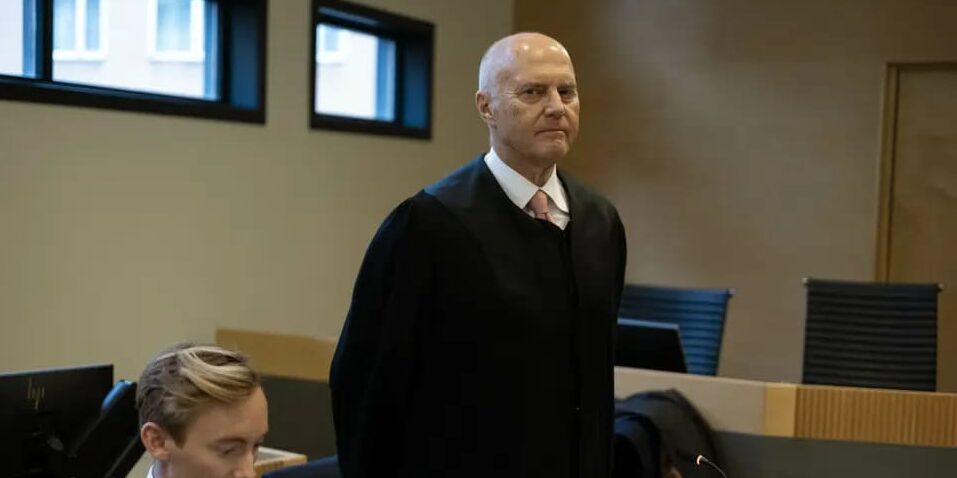
“The purpose of the sentencing committee is to lead people back to a healthy relationship with God, and this should be done in a friendly manner.”
– Kåre Sæterhaug, Board Member of Jehovas Vitner
February 14th, The final day of court proceedings in the appeal case between Jehovah’s Witnesses and the Norwegian state, took an intense turn as the religious community’s lawyer, Anders Stray Ryssdal, launched a sharp critique against the state’s legal team. Ryssdal filed a formal objection against the state for claiming that Elders asked for explicit details in a Judicial Committee. Ryssdal then accused the government of introducing arguments that the religious group had not been allowed to address during the trial.
“This puts the facts of the case in a new position, and we deserved evidence and new mention. This comes too late,” Ryssdal asserted, prompting the court to take a break for the state’s lawyers to consider their position. However, upon returning, the government’s legal team maintained that their argument—concerning allegedly intrusive and uncomfortable interrogations of minors—was part of the broader case framework. “We dispute that such conversations take place,” Ryssdal stated firmly.
Apparent Protest Procedural Fairness
Ryssdal proposed a formal protest, but the court allowed Kåre Sæterhaug, an elder in the organization, to explain. Sæterhaug emphasized that the religious community’s internal guidance does not encourage asking more detailed questions than necessary.
Sætherhaug defends the religious practice, “The purpose of the judicial committee is to lead people back to a healthy relationship with God, and this should be done in a friendly manner.” Like Ryssdal before him, he attempts to deceive the court when he says the process is not being monitored in an oppressive way. It is monitored, and it is oppressive for those who are being tracked down and given an ultimatum if they do not attend the judicial committee meeting, especially when they do not want to meet.
Judge Jørgen Monn challenged this position by referencing witness testimonies that described highly detailed and distressing interrogations. “Could it be that someone has experienced very detailed and unpleasant sentencing committees?” Monn asked. “It has never been in line with the guidance the elders have received,” Sætherhaug responded, maintaining that he had no knowledge of such cases. Of all the lies uttered over the two weeks of the appeal, this is the greatest one. Elders are directed to find out if “porneia” has been committed. How are they to do that if they are not asking invasive questions? The whole judicial process that involves sexual activity is set up to be intensely invasive.
The plaintiff filed expenses for 3.3mn NOK (US$296,000).
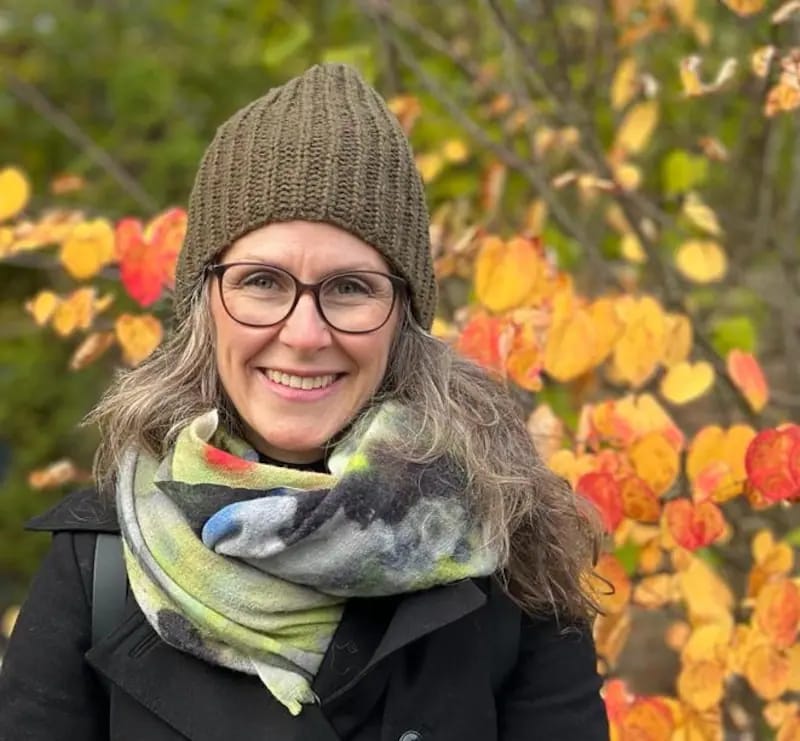
Why is the Government relying on a very limited number of disgruntled former Jehovah’s Witnesses?
– Irmelin Jacobsen, who has never been disfellowshipped, has never tried to leave, and has no experience of sitting before three men in an judicial committee to be questioned about her sexual activity with a third party.
In a Vartland Article (written by and submitted by the Jehovah’s Witnesses leadership in Norway) “Why Has No One Asked Us?” Irmelin Jacobsen, a member of Jehovah’s Witnesses and a wife of Circuit Overseer, Mario Jacobsen, argues that the Norwegian government has unfairly characterized the religious community as practicing “negative social control” without consulting its current members. While her perspective is sincere, it ignores key issues that underpin the state’s concerns and the experiences of those who have left the faith. This is noteworthy, as Mrs Jacobsen has never been disfellowshipped, she has never tried to disassociate, and she has never had to sit in front of three men to discuss intimate details of her sexual activity.
Jacobsen insists, “Did I experience negative social control? Not at all!” However, her experience does not necessarily represent all Jehovah’s Witnesses, particularly those who have left the organization. The government’s case is built on testimonies from former members, many of whom describe coercion, psychological distress, and social isolation after leaving. Irmelin dismissing their voices as merely “A very limited number of disgruntled former Jehovah’s Witnesses” is to ignore the actual harm that has been documented.
She defends the practice of disfellowshipping—where members who violate religious principles are expelled and shunned—by comparing it to receiving a “red card” in football. However, this analogy oversimplifies a deeply personal and often traumatic experience. A football player can return to the game after serving a penalty, but a disfellowshipped Jehovah’s Witness often loses their entire social network, including family ties. That level of enforced isolation is why the state deems the practice a form of psychological violence.
Furthermore, Jacobsen claims, “The elders in my congregation are my friends, not police or bosses.” While that may be true for her, the evidence presented in court suggests that elders enforce strict religious discipline, particularly in matters of morality, sometimes involving intrusive questioning of minors. Her argument that the Bible does not provide a “long list of rules” but rather “principles” also conflicts with the reality that Jehovah’s Witnesses follow rigid doctrinal interpretations that leave little room for individual discretion.
Jacobsen then suggests that she is now facing “negative social control” from the state, stating, “To me, it seems like the state wants to decide who I should be with.” But the government is not dictating her personal relationships—it is simply refusing to fund and officially recognize a religious group that enforces social exclusion in ways that violate children’s rights.
Jacobsen’s passionate defense of her faith is understandable, but her argument dismisses the concerns of former members and misrepresents the state’s actions as coercion rather than a legitimate effort to uphold human rights.
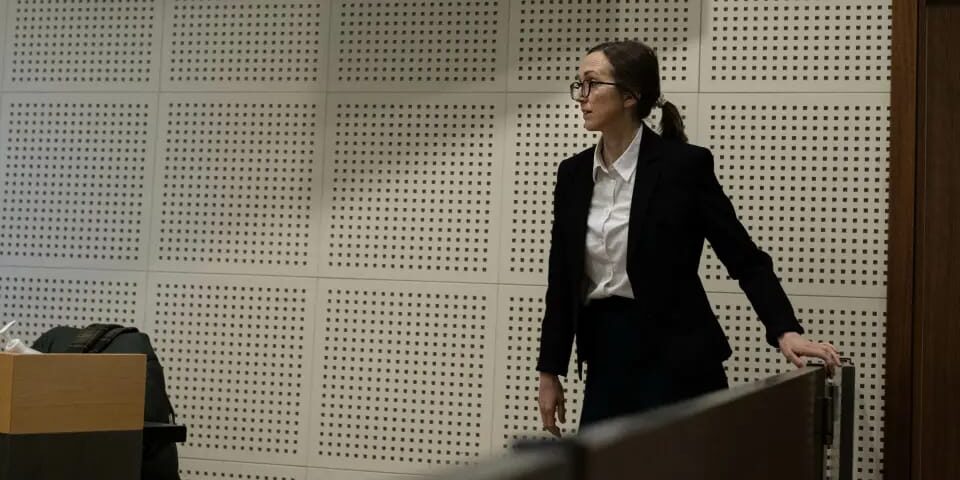
Violation of moral laws can lead to exclusion. We have examples down to an 11-year-old
– Liv Inger Gjone Gabrielson
Following these exchanges, Government attorney Liv Inger Gjone Gabrielsen took the floor, emphasizing that the case is about balancing different rights. She presented examples where minors, including children as young as 11, have been excluded from Jehovah’s Witnesses for violating moral laws.
“Violation of moral laws can lead to exclusion. We have examples down to an 11-year-old,” Gabrielsen stated.
She also clarified that the state is not interfering with Jehovah’s Witnesses’ religious teachings, such as their stance on homosexuality or blood transfusions. Instead, the government’s case revolves around the European Convention on Human Rights, which guarantees children protection from psychological harm. Gabrielsen argued that refusing state subsidies and registration is not an infringement on religious freedom.
“In the state’s view, the decisions have been well enough investigated. The religious community’s practice has provided sufficient basis,” she concluded, reinforcing the state’s position that the appeal should be rejected.
In response, Ryssdal delivered a forceful rebuttal, accusing the government of failing to demonstrate how Jehovah’s Witnesses violate children’s rights or prove that minors are excluded from the religious community. “The state cannot impose additional conditions that it must be comfortable to withdraw,” Ryssdal argued, defending the religious group’s practice of allowing members to leave voluntarily through written withdrawal. He also criticized the government’s use of European legal precedents, claiming their references were misleading. “All the judgments the state refers to have gone our way. It is a selective reading of the premises from the state,” Ryssdal said.
The state countered this argument, with Gabrielsen asserting, “You cannot deduce much from the conclusions alone. I would have liked to go into this more if I had more time.” Her colleague, Kristin Hallsjø Aarvik, reinforced the state’s position, arguing that Jehovah’s Witnesses retain their religious status despite the government’s decisions.
“Jehovah’s Witnesses are a religious community and have status as such. The decisions do not constitute a restriction on the exercise of faith,” Aarvik stated. As the case nears its conclusion, the court must weigh religious freedom against protecting children’s rights.
At the end of the final day the judge spoke, questioning Ryssdal on why he required so many assistants, to which he responded that the case was complex and of great importance to JW headquarters in the U.S.
The judge concluded by acknowledging the case’s significance and the large public interest, noting that a ruling is expected within four to six weeks: “We recognize this case means a lot to many, including those traveling from outside Norway. Given the volume of evidence—6,000 pages and 10,000 underlying documents—we will take the necessary time to reach a well-founded decision.”
A final verdict is expected in the coming weeks.
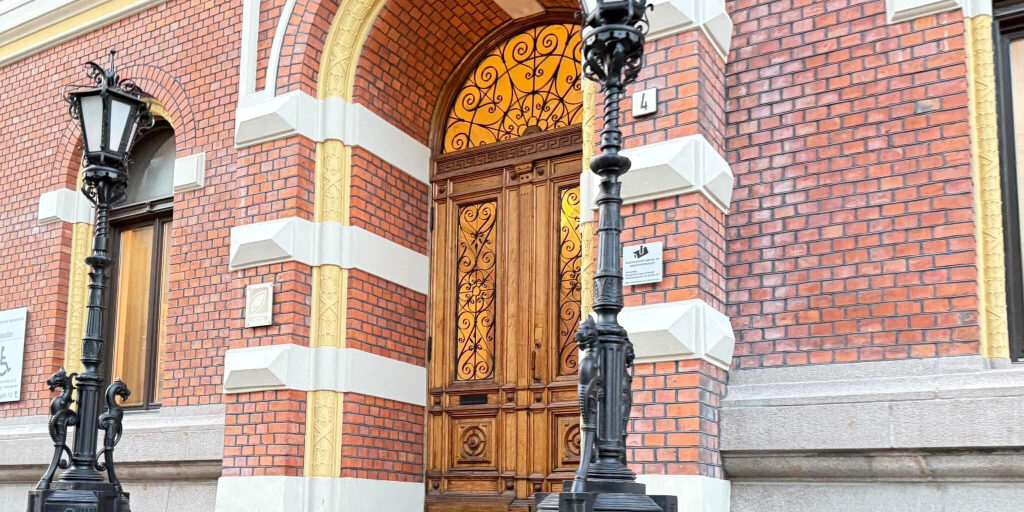
Today marks the final day of this appeal—a case that is not just about government policy but about the fundamental rights and protections that every individual, especially children, deserves in a democratic society. At its core, this case is not an attack on faith. It is not an attempt to silence belief. It is about the boundaries between religious freedom and the duty of the state to protect its citizens from harm.
Jehovah’s Witnesses argue that their practices express their deeply held beliefs. They claim that disfellowshipping—a practice that isolates former members, including minors, from their families and communities—is not harmful but a biblical necessity. But we must ask: At what cost?
They have heard a testimony of children as young as 11 being subjected to exclusion. We have heard of individuals who, upon questioning the faith, lose their place in the congregation, their family, their support system, and their entire world. The Jehovah’s Witnesses call this religious discipline. We call it psychological violence.
The state has not interfered with their right to worship. They may continue to believe, to gather, and to teach. What we ask is that we refuse funding officially and recognize a religious organization that upholds a practice that isolates, shames, and inflicts deep psychological wounds on those who dare to leave. The European Convention on Human Rights protects freedom of religion, but it also protects individuals from coercion, undue pressure, and harm inflicted under the guise of faith.
This is not persecution. This is justice. This is the state drawing a clear line between faith and fundamental rights. The district court’s verdict was correct, and this appeal must be rejected. Norway must not recognize or fund an organization that puts loyalty to doctrine above the well-being of its members.
Jehovah’s Witnesses claim they have not been asked how they feel about the appeal.. We have asked. And former members—the ones who were cast out, the ones who lost their families, the ones who suffered—have answered. Their voices cannot be ignored. These Former Witnesses were strong and stable, expressing their heartfelt stories- Their Truth. They had to relive and testify on all of their harmful pasts again for this appeal. We thank all of the friends, inside sources, and considerate advocates who provided information to AvoidJW so we could report on it.
This case is about the threat of losing everything you love and having to start all over again. When you’re involved in an organization such as the Jehovah’s Witnesses, that is the price we pay.
Elders’ Book: Download a Copy in your language
JW Publication: Keep Yourselves in God’s Love
JW Publication: What Can the Bible Teach Us?
Furuli’s Website: My Beloved Religion
DAGEN February 12th, 2025: Is the treatment of Jehovah’s Witnesses an abuse of power by the state?
DAGEN February 12th, 2025: “It’s natural to lose some contact when religious bonds are broken”
Youtube Channel Udstodt, en podcast om Jehovas Vidner: February 12th, 2025: Ashley Zoe is a former greek/brittish/norwegian Jehovahs Witness.
Youtube Channel Udstodt, en podcast om Jehovas Vidner: February 13th, 2025: Frank Reporting inside the Bogarting Courthouse
DAGEN February 13th, 2025: “There is a limit for religious communities, says government attorney”
Vartland February 14th, 2025: “Who has no one asked us?” Interview of a Jehovah’s Witness
DAGEN February 14th, 2025: “Dramatic end of court – Jehovah’s Witnesses proposed protest”
DAGEN February 14th, 2025: “The entire trial tells of the strong stigmatization of the “witnesses.”
Office of the Attorney General, representing the State of Norway
Glittertind AS Law Firm representing Jehovah’s Witnesses
Reporter
Translator
Analysis